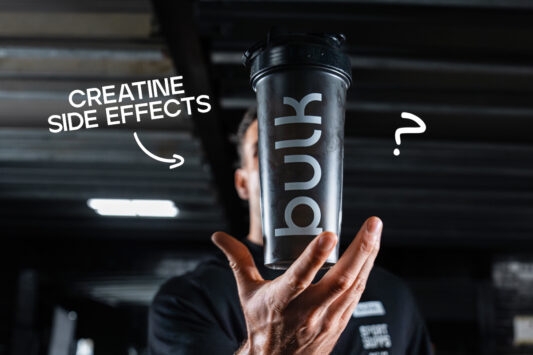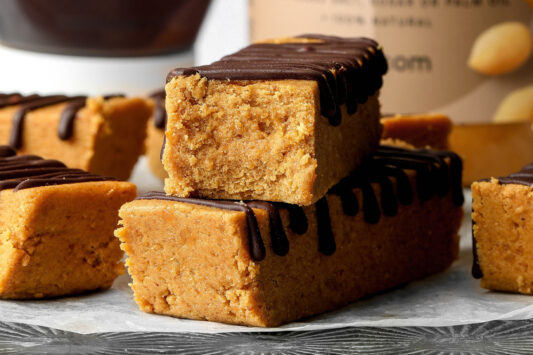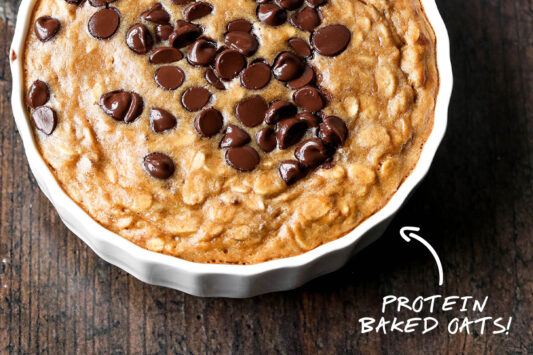The winter months are dark, wet and cold – so it’s no surprise your immune system might take a battering! It is important to make sure you are consuming the micronutrients your body needs to avoid illness, stay healthy and allow for normal bodily function.
Vitamin supplements can be a great addition to your daily diet to support your immune system. In this article, we’ll be taking a look at the 5 best vitamin supplements you could incorporate in to your routine.
See our article on the most important vitamins here.
#1 Vitamin C
Vitamin C is a very important vitamin for the body’s overall health. It contributes to normal function of the body’s immune system and protects cells from oxidative stress, which is an imbalance between the production of free radicals and the body’s ability to detoxify their harmful effects. Regular training of a high intensity places the body under stress, and therefore vitamin C is very important for active individuals. Vitamin C is also important for the maintenance of skin, blood vessels, bones and cartilage, as well as healing injuries.1
There are a number of foods that contain a high amount of vitamin C, including oranges, strawberries, broccoli and potatoes. Supplementing with vitamin C tablets can ensure you consume enough on a daily basis to reap the benefits.
You can also supplement with vitamin C powder, which can easily be added to your daily protein shake.
#2 Vitamin D3
As the body creates vitamin D from contact with direct sunlight on the skin, providing you spend adequate time outdoors, you should have no problem getting enough Vitamin D from March to September. However, throughout the winter months, there is considerably less sunlight and people generally spend less time outdoors due to poor weather. Maybe your working hours mean your sun exposure is low. This is where supplementing with Vitamin D3 can be beneficial, especially between October and March time.
You can consume vitamin D in foods such as red meat, oily fish and egg yolks. However, it can be tricky to get enough vitamin D from food alone, and according to the NHS everyone should consider taking a daily supplement containing at least 10mcg of vitamin D during the autumn and winter months.2
#3 Vitamin E
Vitamin E acts as an antioxidant, making it important for the maintenance of healthy skin and eyes, as well as aiding the body’s immune system to help fight infection. Foods that are high in vitamin E include nuts and seeds, olive oil and wheat; which is found in some cereal products. Vitamin E softgels are an ultra-convenient and cost-effective way to supplement with vitamin E.
#4 B Vitamin Complex
There are a number of different B vitamins including B1 (Thiamine), B2 (Riboflavin), B3 (Niacin), B5 (Pantothenic Acid), B6, B7, B8 (Inositol), B9 (Folic Acid), B10 and vitamin B12. Each B vitamin has a slightly different function. For example, Vitamin B1 aids the breakdown and release of energy from food, and vitamin B6 is important so that the body can use and store energy from carbohydrates and protein in food.
B Vitamin Complex Tablets make consuming all B vitamins easy. Each tablet contains over 100% of your daily NRV for seven different B vitamins, and can help to reduce tiredness and fatigue, which is essential when training regularly.
#5 Complete Multivitamin Complex™
Complete Multivitamin Complex™ provides a premium formulation combining over 30 vitamins and minerals, as well as fruit and plant extracts. The complex is ideal for active individuals, as it supports energy levels, as well as immune system function.
This product is in no way comparable to supermarket multivitamin equivalents, which do not provide a complete collection of vitamins and minerals at the same level of high dosages. Supplementing with Complete Multivitamin Complex™ is a convenient way to add vitamins and minerals to your daily diet in just three tablets per day, to support overall health and wellbeing.
Maintain Health and Wellbeing
Vitamins are a very important part of your diet. It is important that all of the supplements above are treated as just that; supplements. They should be consumed in addition to a healthy, balanced diet to help maintain overall health and wellbeing. Vitamins should come from food sources first and then supplements can help ensure that you are consuming enough of the required vitamins.
Related articles
Eager to learn more vitamins? We believe that every person, with support, has the right to transform their lives through fitness. That’s why we’ve put together hundreds of articles with expert advice, all to help you on your fitness journey. With ultimate guides, information and benefits, check out our vitamin-related articles below:
Benefits of Curcumin and Vitamin D What do Zinc tablets do?
What are the most important vitamins? Benefits of Vitamin D3
Which is multivitamin should I take? Ultimate guide to vitamins and minerals
Which Vitamins do I need? How to boost your energy levels
Best vitamins for vegetarians and vegans Benefits of Fibre
















